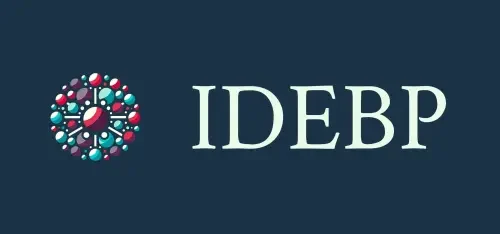Data is the foundation of educational benchmarking, enabling institutions to make informed decisions, set achievable goals, and enhance overall performance. Without reliable data, benchmarking efforts lack accuracy and impact. At IDEBP, we are dedicated to advancing distance education benchmarking, ensuring institutions have access to meaningful insights that drive strategic planning and policy development.
Why Data Matters in Benchmarking
Accurate and well-analyzed data allows institutions to identify strengths, weaknesses, and growth opportunities. By comparing performance metrics to peer institutions, colleges and universities can assess where they stand and implement strategic improvements. IDEBP facilitates this process by offering institutions a structured approach to benchmarking, helping them align their efforts with broader educational trends and priorities.
Ensuring Data Integrity and Consistency
One of the biggest challenges in educational benchmarking is maintaining data integrity and consistency. When institutions rely on incomplete or outdated data, it can lead to misaligned strategies and ineffective decision-making.
At IDEBP, we emphasize the importance of using high-quality, standardized data to ensure benchmarking outcomes are both reliable and actionable. Our approach fosters a culture of accountability and transparency, allowing institutions to confidently measure progress and refine strategies that support institutional growth.
Engaging Stakeholders in Data Analysis
Effective benchmarking requires collaboration across departments, ensuring that key stakeholders—including faculty, administrators, and institutional researchers—play an active role in data interpretation. When benchmarking efforts align with institutional priorities, the insights gained lead to targeted and effective improvements.
IDEBP works closely with institutional partners to integrate cross-functional collaboration into the benchmarking process. This ensures that diverse perspectives contribute to comprehensive action plans, translating collected data into meaningful and sustainable improvements.
Adapting to Change Through Continuous Assessment
The educational sector is constantly shifting, with new technologies, policies, and student needs emerging regularly. Institutions that commit to continuous data assessment and adaptation remain competitive and proactive in addressing challenges.
Through our work at IDEBP, we help institutions refine policies, allocate resources efficiently, and drive long-term institutional success. Our benchmarking framework ensures that institutions stay ahead of change by leveraging data-driven insights to inform decision-making and shape a more effective and forward-thinking educational ecosystem.
Leverage Data for Smarter Benchmarking with IDEBP
IDEBP is committed to helping institutions harness data-driven benchmarking for sustainable growth. By ensuring data integrity, engaging key stakeholders, and continuously evaluating progress, institutions can create meaningful and lasting improvements.
Whether your institution is looking to enhance student outcomes, optimize program offerings, or improve operational efficiency, IDEBP provides the insights needed to turn data into action.
Data is the foundation of educational benchmarking, enabling institutions to make informed decisions, set achievable goals, and enhance overall performance. Without reliable data, benchmarking efforts lack accuracy and impact.
Why Data Matters in Benchmarking
Accurate and well-analyzed data allows institutions to identify strengths, weaknesses, and growth opportunities. By comparing performance metrics to peer institutions, colleges and universities can assess where they stand and implement strategic improvements.
Ensuring Data Integrity and Consistency
One of the biggest challenges in educational benchmarking is maintaining data integrity and consistency. When institutions rely on incomplete or outdated data, it can lead to misaligned strategies and ineffective decision-making.
At IDEBP, we emphasize the importance of using high-quality, standardized data to ensure benchmarking outcomes are both reliable and actionable. A strong data framework fosters a culture of accountability and transparency, allowing institutions to confidently measure progress and refine strategies.
Engaging Stakeholders in Data Analysis
Effective benchmarking requires collaboration across departments, ensuring that key stakeholders—including faculty, administrators, and institutional researchers—play an active role in data interpretation. When benchmarking efforts align with institutional priorities, the insights gained lead to targeted and effective improvements.
Involving diverse perspectives also allows institutions to develop comprehensive action plans, ensuring that the data collected translates into meaningful change. This approach not only strengthens institutional strategies but also enhances long-term sustainability in an evolving educational landscape.
Adapting to Change Through Continuous Assessment
The educational sector is constantly shifting, with new technologies, policies, and student needs emerging regularly. Institutions that commit to continuous data assessment and adaptation remain competitive and proactive in addressing challenges.
By leveraging benchmarking insights, institutions can refine policies, allocate resources efficiently, and drive long-term institutional success. Data-driven benchmarking is not just about comparison—it’s about using insights to shape a more effective and forward-thinking institution.
Leverage Data for Smarter Benchmarking
IDEBP is committed to helping institutions harness data-driven benchmarking for sustainable growth. By ensuring data integrity, engaging key stakeholders, and continuously evaluating progress, institutions can create meaningful and lasting improvements.
Explore how educational benchmarking can transform your institution.
